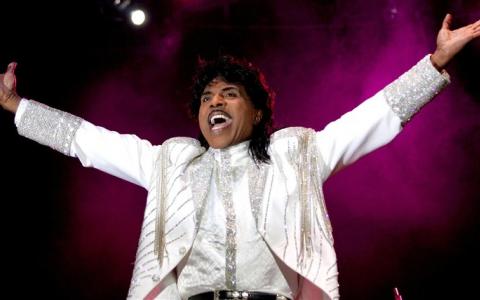
Long and legendary career still feels unsettled as religious vocation and early excess add up. The heirs now have a generational choice between obscurity and immortality.
Little Richard was 87 when he died, which means the pop revolution he helped popularize -- rock and roll itself -- is now old enough to collect Social Security.
That timeline is what dynastic planning is all about. The world has changed a lot since the early 1930s, when Richard was born. And the music industry is practically unrecognizable.
But it means that assumptions locked into today’s superstar careers are going to be meaningless when applied to people from his generation.
They say Little Richard generated at least $40 million across the decades. I’m not convinced there’s a lot of that money left or even a lot of people around to claim it.
It’s not enough to earn big in life and hold onto some of it. You need to keep people around to manage your posterity after you’re gone.
Image is everything
Richard probably leaves his remaining wealth to his 49-year-old son Danny, by default if not by design. They seem to have stayed on good terms over the years.
Depending on his mood, there’s a strong chance that religious charities will get a piece of the estate as well. He could have decided to leave it all to one or more church organizations.
The question is really more about how much there is to distribute.
Start with the assets themselves. While authorship of the enduring hits like “Tutti Frutti” is disputed, his birth name Penniman appears on the original singles as composer.
Unfortunately, he sold the publishing rights in the mid-1950s and the intellectual property eventually ended up at Sony. He sued multiple times, trading cash settlements for royalty rights each time.
As a result, there’s no vast copyright library for his heirs to shepherd for future generations. And there’s no mysterious archive of unreleased recordings, either.
In theory the estate could generate income licensing Richard’s distinctive look and performance style via “hologram” style virtual celebrity technologies.
But endorsements haven’t exactly been ubiquitous over the decades. If Danny wants to chase that money, he’ll need to build relationships and alert the world that “Little Richard” is now available to sell products.
I don’t think that’s his style. Danny is extremely private. While he confirmed his father’s death to the music press, he seems to have played more of a caretaker role than anything more business oriented.
He shows up under his birth name in the reporting around Little Richard’s car crash a few years back. He apparently served as bodyguard and assistant.
Despite what you might see, pictures online are not him. If he suddenly decided to turn his father’s image into an empire, it would be more than a little out of character.
Otherwise, Richard’s surviving siblings are too old to lobby hard for celebrity holograms and the churches he associated with probably find the idea ghoulish at best.
Everything else is cash. There aren’t any foundations or charities associated with Little Richard. He was a private person and died that way.
From celebrity to retirement
I’d think about people like Little Richard less as cultural institutions and more as individuals who are compensated for their talent for a few years and then return to private life.
Their challenges are the same as the ones that face other retirees: longevity and income. You want enough income to live on. You don’t want to outlive the income.
Little Richard’s core career ran about 35 years. That’s a healthy period of time to amass significant wealth.
The publishing should have been the key to that retirement plan, but he sold that away early on. Everyone should learn that lesson.
Without the royalties or the ability to trade them for a lump sum payout, he was really just a performer paid by the show. When he stopped touring, that money dried up.
And since he largely stopped recording decades ago, that money dried up too. That’s okay. A lot of people retire early when they can. A lot of others go on working until extremely late in life because they need the money.
Little Richard seems to have accumulated enough money settling his lawsuits to live quietly. He didn’t need to work.
Whether he left $40 million behind is beside the point. He paid the bills and didn’t have to tour in a wheelchair. He made choices that aligned with his gut and his religious views.
Maybe it wasn’t a lot of money in the end, but it was “enough.” Danny now has to figure out what he’s willing to settle for in his life.
And if it all goes back to God anyway, that’s all right. Little Richard scorched through his life and got a lot of people to dance in the process.



